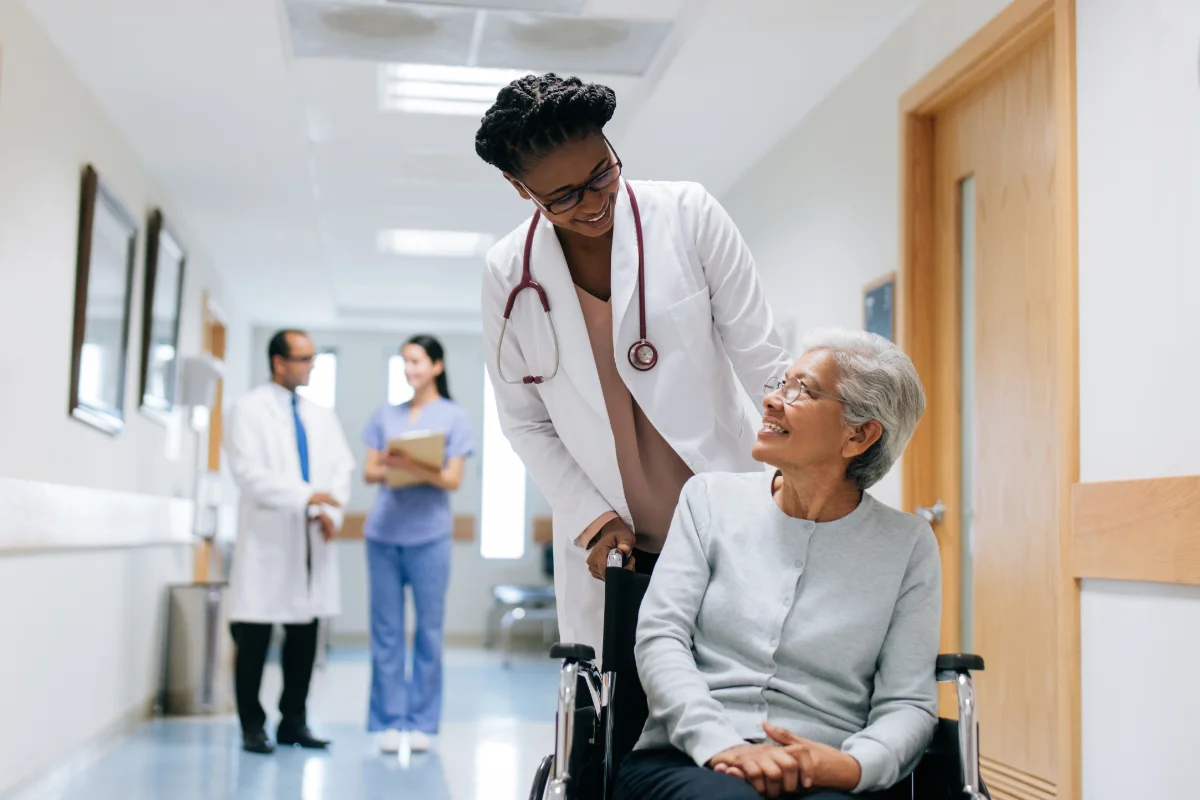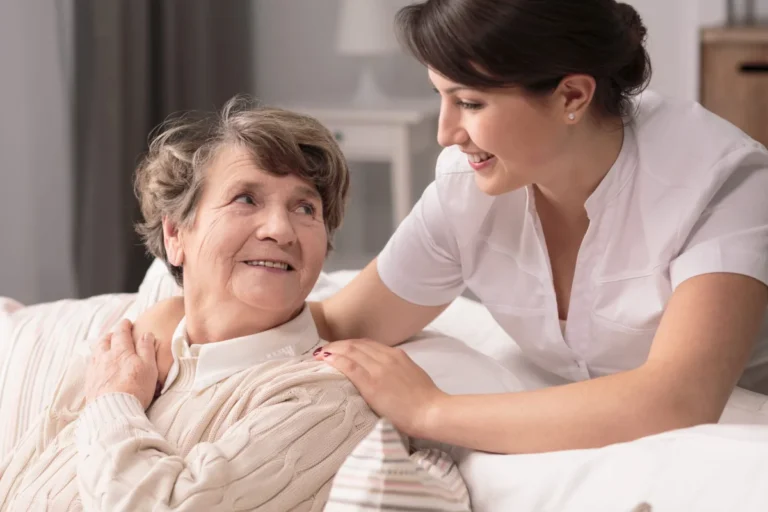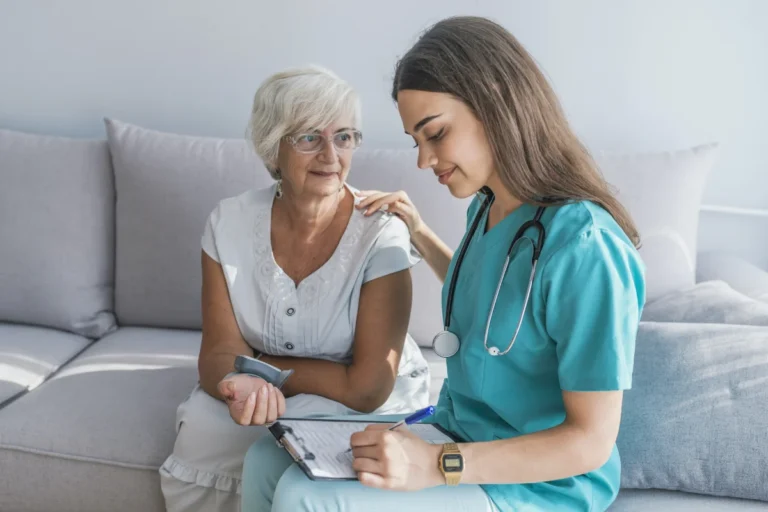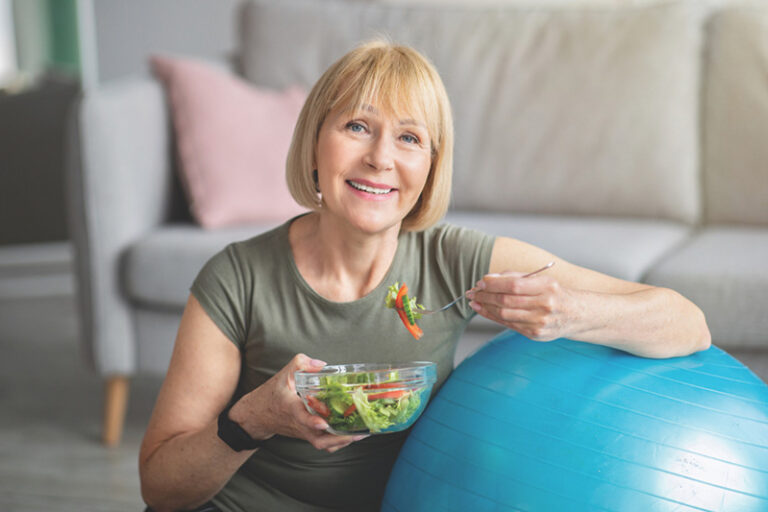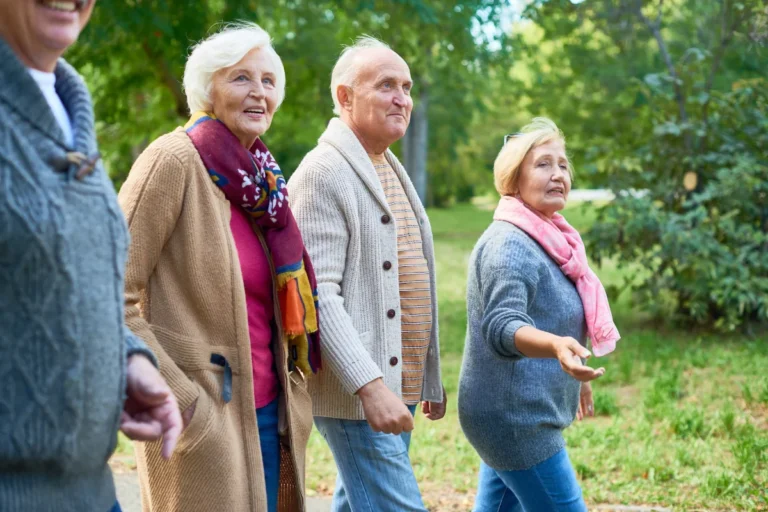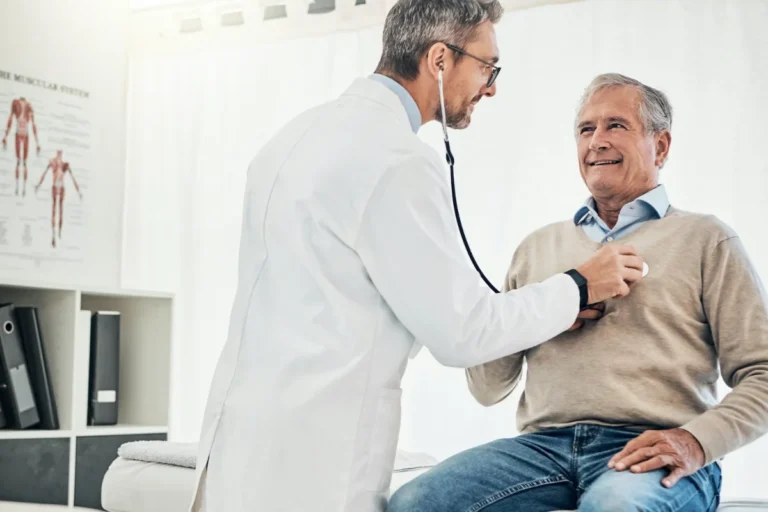The American Academy of Family Physicians (AAFP) reports that falls are the leading cause of emergency room visits and of accidental deaths for Americans over the age of 65. The mortality rate for falls increases with age; in the U.S., 70% of accidental deaths for people over the age of 75 are attributed to falls.
So, why do the elderly die after a fall? Head trauma and internal bleeding are some of the more serious results from a fall that may lead to death. Additionally, bone fractures can create a need for hospitalization, which may mean the patient is immobile in bed. Respiratory and other infections can arise in these situations, which can be fatal.
If you are concerned about an elderly loved one’s risk of falls, it helps to understand what creates fall risk, how to prevent falls and what to look for after an elderly person falls.
Most Common Causes of Falls in the Elderly
For seniors, falls can be accidental or they can be signs of declining function and poor health. The AAFP reports that more than 90 percent of hip fractures in people over the age of 70 are due to falls. Once a senior does fall, data shows that he or she is more likely to fall again. Here are some of the most common causes of falls in the elderly:
- Poor reaction times
- The fear of falling
- Reduced muscle strength
- Impaired walking patterns
- Limitations in mobility
- Visual impairment
- Impaired balance
Seniors who reside at home alone may be at risk for more falls or at increased risk for complications from a fall. For example, at Hamilton Memorial Rehabilitation and Health Care Center, the team maintains a focus on safety, health and independence. Each resident can enjoy the activities of their choosing, while receiving the support they need to meet their health and fitness goals.
Falls in the Elderly
When you consider the physical effects of a fall for seniors, it’s clearly important to prevent falls before they happen. At Metropolis Rehabilitation and Health Care Center, each resident receives a personalized care plan that includes each resident’s individual needs and health goals, as well as recommendations for safety and health improvements made by their physician, family members and specialty health care providers. This helps to maximize efforts to keep each resident safe, while allowing flexibility for each resident to maintain their independence and grow their physical strength. Here are some additional tips to keep your loved ones safe:
- Keep living spaces clean and pick up floor clutter.
- Remove tripping hazards.
- Adequately light each room.
- Install handrails and grab bars.
- Wear shoes to improve balance; avoid wearing only socks.
- Avoid stairs.
- Install nonslip aids in showers, kitchens and anywhere that may become a wet surface.
- Encourage your loved one to move carefully.
If your loved one does fall, seek medical attention immediately to reduce the risk of lasting injury, chronic pain or death. Once your loved one has been treated, it is important to know what to look for after an elderly person falls. Call for additional medical help if your loved one shows signs of:
- Obvious swelling
- Headaches
- Lingering pain
- Bruising
- Loss of balance
- Ringing in the ears
- Back pain
- Dizziness
Healthy and Happy Living
At Tutera Senior Living & Health Care, we understand that retirement is both exciting and intimidating. We want to help ease your concerns and support you as you create a lifestyle you love. From fitness programs, outings and live entertainment to social occasions and specialty dining, all of our senior communities have lots of choices for you to fill your days. Our affordable, easy, month-to-month lease option provides you with both flexibility and value.
Interested in finding a Tutera Senior Living community near you? Try our community finder! Have questions about our communities or our care? Contact us today by calling 877-988-8370 – we would love to give you answers!

